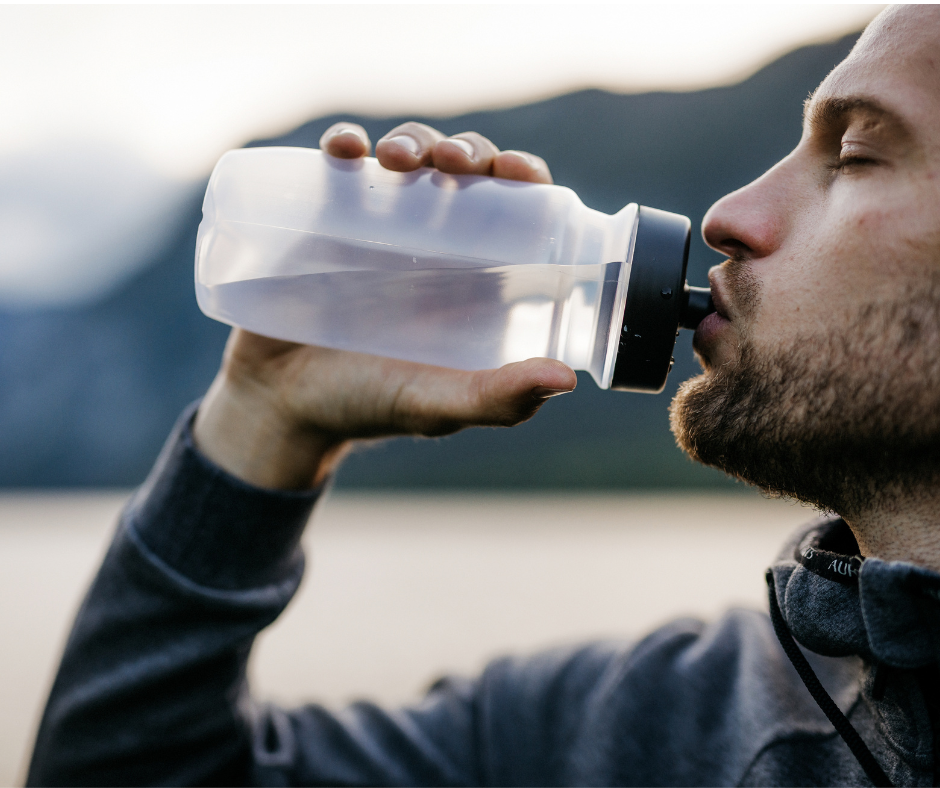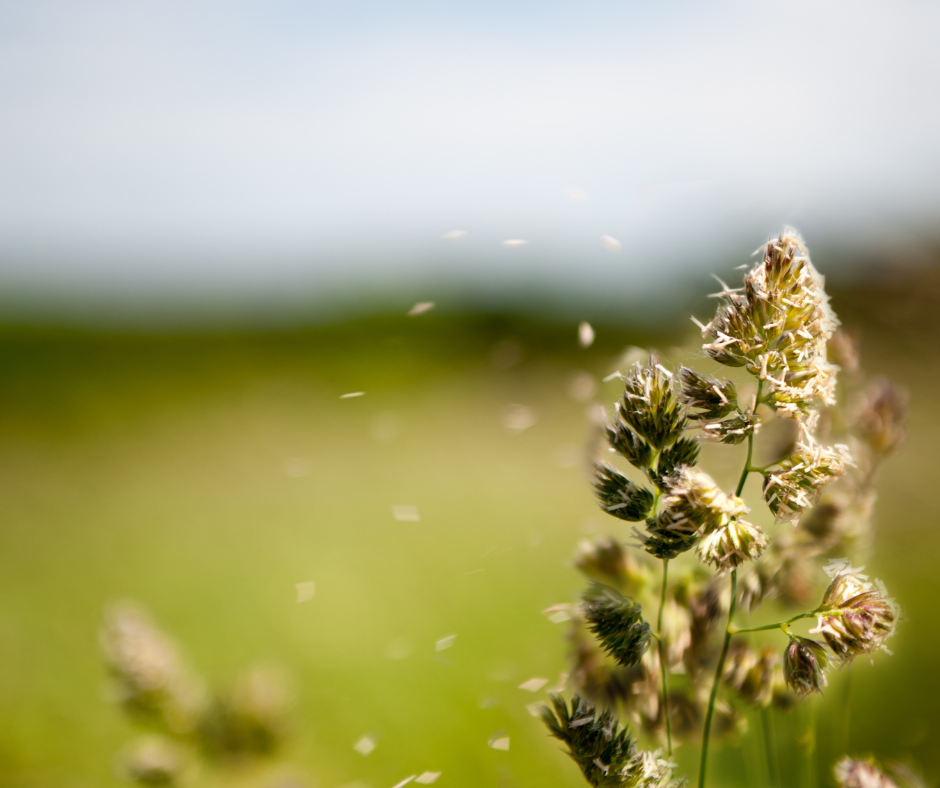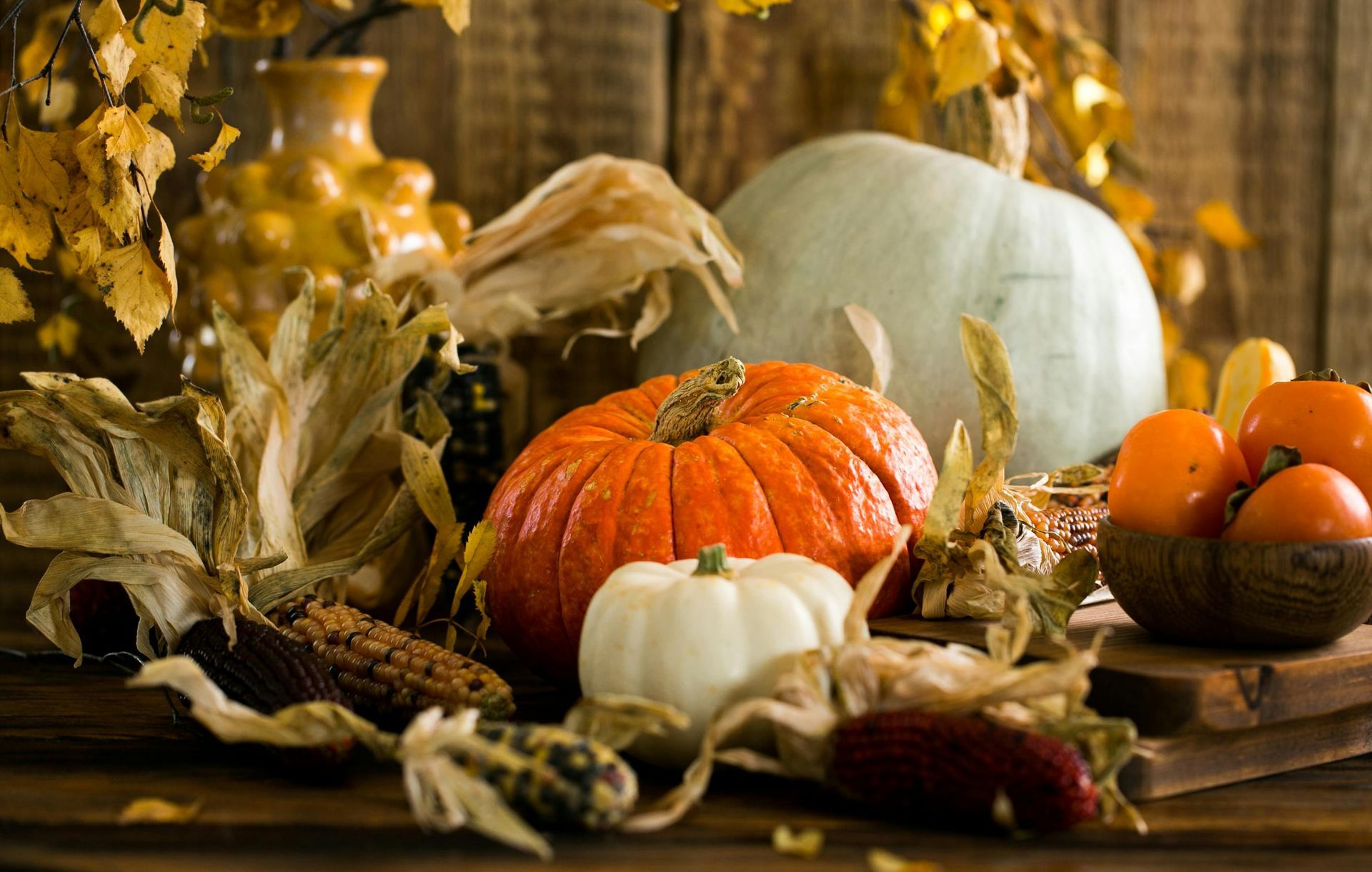Hydration Habits for Winter
Bloom Health and Wellness
Why Water is Essential, Even in the Cold

As the winter season blankets us in its chilly embrace, it's easy to forget the importance of staying hydrated. While the sweltering heat of summer may not be a concern, the cold weather can still take a toll on your body's hydration levels. In this blog post, we'll explore why maintaining proper hydration is crucial during winter and provide tips to cultivate effective hydration habits that will keep you feeling your best all season long.
The Winter Dehydration Dilemma
It's a common misconception that dehydration is only a concern during hot summer days. In reality, the winter months present unique challenges to our hydration levels. The cold air tends to be drier, both outdoors and indoors due to heaters, which can contribute to increased fluid loss. Additionally, people may not feel as thirsty in colder weather, leading to unintentional dehydration.
The Importance of Hydration in Winter
Combatting Dry Skin:
Winter often brings dry, itchy skin, and staying hydrated plays a vital role in maintaining skin health. Proper hydration helps to moisturize your skin from the inside out, reducing the discomfort of dry winter skin.
Boosting Immune Function:
Hydration is essential for a well-functioning immune system. Dehydration can compromise the immune response, making you more susceptible to winter illnesses like colds and flu. Ensuring adequate water intake supports your body's ability to fight off infections.
Regulating Body Temperature:
While you may not be sweating as much in the winter, your body still loses water through respiration and other processes. Staying hydrated helps regulate your body temperature, especially when transitioning between cold outdoor environments and warm indoor spaces.
Preventing Muscle Cramps:
Dehydration can contribute to muscle cramps and stiffness. In winter, when outdoor activities may be limited, it's crucial to stay hydrated to support your muscles' flexibility and reduce the risk of cramping.
Tips for Cultivating Hydration Habits in Winter
1. Set a Hydration Schedule:
Establishing a routine for water intake can help ensure you're consistently staying hydrated. Set specific times during the day to drink water, such as having a glass before each meal or drinking a full glass when you wake up and before bedtime.
2. Keep a Water Bottle Handy:
Carry a reusable water bottle with you wherever you go. Having water readily available makes it easier to stay hydrated throughout the day, whether you're at work, running errands, or spending time outdoors.
3. Spice Up Your Water:
If plain water doesn't excite your taste buds, infuse it with natural flavors. Add slices of citrus fruits, cucumber, or a few mint leaves to enhance the taste. Herbal teas and warm water with a splash of lemon are also excellent hydrating alternatives in colder weather.
4. Consume Hydrating Foods:
In addition to drinking water, incorporate hydrating foods into your winter diet. Foods with high water content, such as soups, broths, fruits, and vegetables like cucumbers and watermelon, contribute to your overall hydration.
5. Warm Beverages Count Too:
While cold water may not be as appealing in winter, warm beverages also contribute to your daily hydration needs. Enjoy a cup of herbal tea, hot water with lemon, or a comforting bowl of broth to stay warm and hydrated simultaneously.
6. Be Mindful of Indoor Heating:
Indoor heating systems can contribute to a dry environment, leading to increased fluid loss through respiration. Consider using a humidifier to add moisture to the air and prevent excessive dehydration, especially during extended periods indoors.
7. Dress Appropriately for Outdoor Activities:
When engaging in winter sports or outdoor activities, dress in layers to regulate body temperature and prevent excessive sweating. Sweating, even in the cold, contributes to fluid loss. Be mindful of your hydration needs and carry water with you during outdoor excursions.
8. Monitor Urine Color:
Your urine color is a good indicator of your hydration status. Aim for a pale yellow color, which generally indicates proper hydration. Dark yellow or amber-colored urine may suggest dehydration, prompting the need to increase your water intake.
While the temptation to reach for a warm cup of cocoa or coffee may be strong in winter, don't forget the importance of maintaining proper hydration. Water is a fundamental element for overall health, and its significance doesn't diminish when the temperature drops. By understanding the unique challenges of winter dehydration and implementing simple hydration habits, you can ensure your well-being throughout the colder months. So, sip smart, stay hydrated, and embrace the winter season with a healthy and hydrated body. Your health will thank you for it!

April 2, 2025
Spring is a season of renewal—a time when nature bursts into life, days grow longer, and the air feels fresher. However, for many, the transition from winter to spring can bring unexpected fatigue. If you find yourself struggling with energy slumps despite the season’s promise of vibrancy, you’re not alone. The good news is that you can revitalize your energy naturally by focusing on key wellness strategies such as nutrition, hydration, hormone balance, and IV vitamin therapy. Understanding Spring Fatigue While the increased daylight and warmth of spring can be uplifting, seasonal transitions can also challenge the body. Factors such as lingering winter sluggishness, disrupted sleep patterns, and the body's natural adjustments to longer days can contribute to spring fatigue. Common symptoms include: Persistent tiredness, even after a full night’s sleep Brain fog or difficulty concentrating Increased cravings for sugary or processed foods Mood fluctuations or irritability If this sounds familiar, it’s time to embrace simple yet effective natural solutions to restore your energy levels and fully enjoy the season. 1. Optimize Your Nutrition for Sustained Energy What you eat plays a critical role in determining how energized you feel throughout the day. Fueling your body with the right nutrients can prevent energy crashes and keep you feeling vibrant. Focus on Whole, Nutrient-Dense Foods Incorporate fresh, seasonal produce such as leafy greens, asparagus, berries, and citrus fruits, which provide essential vitamins and antioxidants. Prioritize lean proteins like chicken, fish, eggs, and plant-based sources like lentils and beans to maintain steady blood sugar levels.- Include healthy fats from sources like avocados, nuts, seeds, and olive oil to support brain function and energy production. Balance Blood Sugar Fluctuating blood sugar levels are a leading cause of energy slumps. Avoid processed sugars and refined carbs, which cause rapid spikes and crashes. Instead, choose complex carbohydrates like sweet potatoes, quinoa, and whole grains that provide sustained energy. Don’t Skip Breakfast Start your day with a protein-rich breakfast to stabilize energy levels. Eggs with vegetables, a smoothie with protein powder, or Greek yogurt with nuts and berries can set the tone for a productive day. 2. Hydration: The Simple Yet Overlooked Energy Booster Even mild dehydration can lead to fatigue, headaches, and poor concentration. As temperatures rise in spring, staying adequately hydrated becomes even more important. How to Stay Hydrated: Aim for at least 8-10 glasses of water per day, or more if you’re active. Incorporate hydrating foods such as cucumbers, watermelon, and oranges into your diet. Drink herbal teas or coconut water for added hydration and electrolytes. Limit caffeine and alcohol, which can contribute to dehydration and energy crashes. If you often forget to drink water, set reminders or carry a reusable water bottle with you throughout the day. 3. Balance Your Hormones for Consistent Vitality Hormones play a crucial role in regulating energy levels, and imbalances can lead to persistent fatigue, mood swings, and difficulty maintaining focus. Key Hormones That Impact Energy: Cortisol: The stress hormone, which, when elevated for extended periods, can lead to adrenal fatigue and low energy. Thyroid Hormones: An underactive thyroid (hypothyroidism) can cause sluggishness and slow metabolism. Insulin: Poor insulin regulation can result in blood sugar crashes and energy dips. Estrogen & Testosterone: Imbalances in these hormones can affect both men and women, leading to fatigue, brain fog, and muscle weakness. How to Support Hormone Balance Naturally: Manage Stress: Chronic stress can deplete energy. Practice mindfulness, deep breathing, or yoga to keep cortisol in check. Prioritize Sleep: Aim for 7-9 hours of high-quality sleep each night, and maintain a consistent sleep schedule. Exercise Regularly: Physical activity helps regulate hormones, improve circulation, and boost energy levels. Consider Hormone Testing: If you suspect hormonal imbalances, consulting with a healthcare provider for testing and bioidentical hormone therapy may help restore balance. 4. Harness the Benefits of IV Vitamin Therapy If you’re struggling with low energy despite maintaining good habits, IV vitamin therapy can be a game-changer. This treatment delivers essential vitamins, minerals, and hydration directly into your bloodstream for maximum absorption. How IV Therapy Boosts Energy: Replenishes Nutrient Deficiencies: Many people are low in key energy-boosting vitamins such as B12, magnesium, and vitamin C. Improves Hydration: IV fluids restore optimal hydration levels, helping you feel more refreshed and alert. Enhances Cellular Function: Nutrients like amino acids and antioxidants support mitochondrial function, the powerhouse of energy production in your cells. Popular IV blends for energy include high-dose vitamin C, B-complex vitamins, and amino acids to revitalize your body and mind. 5. Take Advantage of Longer Days and Increased Sunlight One of the best natural energy boosters of spring is sunlight. Exposure to natural light helps regulate your circadian rhythm, improve mood, and increase vitamin D levels, all of which contribute to higher energy levels. Tips for Maximizing Sunlight Exposure: Spend at least 15-30 minutes outdoors in the morning to help reset your internal clock. Take daily walks, practice yoga in the park, or garden in natural sunlight. Open your curtains early to let natural light into your home. Consider a vitamin D supplement if you spend limited time outdoors or live in a cloudy region. Final Thoughts: Spring Into Energy Spring is a time of renewal, and by making intentional choices, you can harness the season’s natural energy to feel your best. By optimizing your nutrition, staying hydrated, balancing your hormones, considering IV vitamin therapy, and embracing the benefits of longer daylight, you can overcome fatigue and enjoy a more energized, productive season. If you’re ready to take control of your energy levels, Bloom Health and Wellness offers expert guidance, personalized treatments, and IV vitamin therapy to support your journey. Contact us today to revitalize your health and embrace the vibrancy of spring!

March 19, 2025
Spring is a beautiful time of year, but for many people, it also signals the arrival of allergy season. The blooming flowers, budding trees, and warmer weather bring an abundance of pollen and other allergens that can trigger sneezing, congestion, itchy eyes, and overall discomfort. While over-the-counter medications can provide relief, they often come with unwanted side effects like drowsiness or dry mouth. Fortunately, there are natural ways to support your immune system and help your body fight off seasonal allergies more effectively. Understanding Seasonal Allergies Seasonal allergies, also known as hay fever or allergic rhinitis, occur when the immune system overreacts to allergens such as pollen, mold spores, and pet dander. When these allergens enter the body, the immune system releases histamines, which cause inflammation and lead to common allergy symptoms like: - Sneezing - Runny or stuffy nose - Itchy, watery eyes - Scratchy throat - Fatigue By strengthening your immune system and making lifestyle changes, you can help your body respond more effectively to allergens and reduce the severity of symptoms. ### Natural Ways to Boost Your Immune System and Reduce Allergy Symptoms #### 1. Optimize Your Gut Health Your gut health plays a crucial role in your immune system. A healthy gut microbiome helps regulate immune responses, reducing the likelihood of overreacting to allergens. - **Probiotics:** Eating probiotic-rich foods like yogurt, kefir, sauerkraut, kimchi, and miso can help maintain a balanced gut microbiome. - **Prebiotics:** Foods high in fiber, such as bananas, garlic, onions, and asparagus, promote the growth of good bacteria in your gut. - **Reduce Processed Foods:** Limit your intake of processed foods and added sugars, which can disrupt gut health and weaken your immune response. #### 2. Stay Hydrated Hydration is essential for overall health and plays a role in reducing allergy symptoms. - **Drink Plenty of Water:** Staying hydrated helps thin mucus, making it easier for your body to clear allergens from your system. - **Herbal Teas:** Teas like nettle, peppermint, and ginger have natural antihistamine properties that can help soothe allergy symptoms. - **IV Hydration Therapy:** If you struggle with dehydration, IV therapy can provide immediate hydration and essential nutrients to support your immune system. #### 3. Strengthen Your Immune System with Key Nutrients Certain vitamins and minerals help regulate the immune system and may reduce allergic reactions. - **Vitamin C:** A natural antihistamine, vitamin C reduces inflammation and supports immune function. Foods high in vitamin C include oranges, strawberries, bell peppers, and leafy greens. - **Vitamin D:** Low vitamin D levels have been linked to increased allergy symptoms. Spending time in the sun or taking a supplement can help maintain optimal levels. - **Quercetin:** Found in apples, onions, and citrus fruits, quercetin is a natural flavonoid with antihistamine properties that help stabilize immune cells. - **Magnesium:** This mineral helps relax airways and can reduce the severity of asthma and allergy symptoms. Sources include nuts, seeds, and leafy greens. #### 4. Reduce Inflammation with an Anti-Inflammatory Diet Chronic inflammation can make allergies worse. Adopting an anti-inflammatory diet can help calm the immune system. - **Eat More Omega-3s:** Fatty fish like salmon, flaxseeds, and walnuts help reduce inflammation. - **Avoid Dairy and Processed Foods:** Some people find that dairy increases mucus production, worsening allergy symptoms. - **Increase Antioxidant-Rich Foods:** Berries, turmeric, ginger, and green tea are packed with antioxidants that support immune function. #### 5. Support Natural Detoxification Your body naturally detoxifies itself, but supporting this process can help remove allergens more efficiently. - **Liver Support:** Your liver plays a major role in detoxification. Eating cruciferous vegetables like broccoli, Brussels sprouts, and cabbage can help support liver function. - **Sweating It Out:** Exercise and infrared saunas help your body eliminate toxins and allergens through sweat. - **Dry Brushing and Lymphatic Massage:** These techniques stimulate the lymphatic system, which helps remove toxins from the body. #### 6. Try Natural Antihistamines and Herbal Remedies Several natural substances can help reduce histamine levels and ease allergy symptoms. - **Local Honey:** Consuming raw, local honey may help your body build tolerance to local pollen over time. - **Butterbur:** This herb has been shown to reduce inflammation and act as a natural antihistamine. - **Stinging Nettle:** Nettle leaf extract has natural antihistamine properties that can ease symptoms like sneezing and congestion. #### 7. Keep Your Environment Allergy-Friendly Making small changes in your home can significantly reduce allergen exposure. - **Use an Air Purifier:** A high-quality HEPA filter can help remove pollen, dust, and pet dander from the air. - **Keep Windows Closed:** On high-pollen days, keeping windows shut can prevent allergens from entering your home. - **Shower and Change Clothes After Being Outdoors:** Pollen can stick to your hair, skin, and clothing, so rinsing off after spending time outside can help prevent symptoms. - **Wash Bedding Frequently:** Dust mites and pollen can accumulate on pillows and sheets, so washing them in hot water regularly can help reduce allergens. #### 8. Manage Stress to Prevent Immune System Overload Chronic stress can weaken the immune system and make allergy symptoms worse. - **Practice Mindfulness and Meditation:** Deep breathing and meditation can help lower stress levels and reduce inflammation. - **Get Enough Sleep:** Poor sleep can make allergies worse, so aim for 7-9 hours of quality sleep each night. - **Exercise Regularly:** Moderate exercise supports immune function and can help reduce allergy symptoms. ### When to Seek Professional Support If your allergy symptoms are severe or persistent, you may benefit from additional support: - **IV Vitamin Therapy:** IV therapy can deliver high doses of vitamins like C and B-complex directly into your bloodstream for faster relief. - **Allergy Testing:** Identifying specific allergens can help you develop a targeted plan to reduce exposure. - **Holistic Treatments:** Acupuncture and naturopathic medicine can help regulate immune responses and reduce allergy severity. ### Final Thoughts Seasonal allergies can be frustrating, but by strengthening your immune system naturally, you can minimize symptoms and improve your overall well-being. Making simple changes to your diet, hydration, environment, and stress management can make a significant difference in how your body reacts to allergens. If you need extra support, Bloom Health and Wellness offers IV vitamin therapy, immune-boosting treatments, and holistic solutions to help you thrive during allergy season. Are you ready to take control of your allergies naturally? Contact us today to learn how we can help you feel your best this spring!

March 5, 2025
Every year, Daylight Saving Time (DST) marks the transition into longer, brighter days. While the extra daylight can boost mood and productivity, the loss of an hour of sleep can disrupt our internal clocks and leave us feeling groggy. Instead of dreading the change, why not embrace it and use it as an opportunity to reset your habits and maximize your well-being? In this guide, we'll explore ways to adjust smoothly to DST, optimize your energy levels, and make the most of the extra daylight hours. Understanding Daylight Saving Time Daylight Saving Time is the practice of moving the clocks forward by one hour in the spring to extend evening daylight. In the United States, DST begins on the second Sunday in March and ends on the first Sunday in November. The concept dates back to the early 20th century and was originally designed to reduce energy consumption by maximizing natural light. However, shifting the clocks forward can temporarily disrupt our circadian rhythms, which regulate sleep, digestion, and overall health. Fortunately, with a few mindful adjustments, you can minimize the negative effects and harness the benefits of longer days. Preparing for the Time Change 1. Gradually Adjust Your Sleep Schedule Rather than shocking your body with an abrupt one-hour change, ease into DST by adjusting your sleep schedule gradually: A week before the time change, go to bed 15-20 minutes earlier each night. Wake up slightly earlier each morning to help your body adapt. Limit exposure to screens and bright lights before bedtime to encourage melatonin production. 2. Prioritize Quality Sleep Since DST can lead to sleep deprivation, focusing on good sleep hygiene is essential: Establish a consistent bedtime routine, including relaxation techniques like reading or meditation. Keep your bedroom cool, dark, and quiet to promote restful sleep. Avoid caffeine and heavy meals in the evening, as they can disrupt your ability to fall asleep. 3. Get Morning Sunlight Sunlight is a powerful regulator of circadian rhythms. After the time change, make an effort to get outside in the morning: Open your blinds as soon as you wake up to let in natural light. Take a morning walk or sip your coffee outdoors. If natural light exposure is limited, consider using a light therapy lamp. Boosting Energy and Productivity After DST 4. Stay Hydrated and Eat Nutritious Foods Dehydration and poor nutrition can exacerbate fatigue. To keep your energy levels stable: Drink plenty of water throughout the day. Eat a balanced diet rich in protein, healthy fats, and complex carbohydrates. Incorporate foods high in magnesium and B vitamins, which support energy production and brain function. 5. Take Advantage of Natural Light for Productivity Longer daylight hours can positively impact focus and motivation. Use them to your advantage by: Working in well-lit areas or near windows. Taking short breaks outdoors to refresh your mind. Scheduling important tasks during peak daylight hours when your energy is highest. 6. Stay Active to Combat Fatigue Exercise is a natural energy booster that can help reset your internal clock: Aim for at least 30 minutes of physical activity each day, such as walking, yoga, or strength training. Consider outdoor workouts in the evening to enjoy the extended daylight. Avoid intense exercise too close to bedtime, as it can interfere with sleep. Making the Most of Longer Evenings 7. Spend More Time Outdoors With extra daylight, you have more opportunities to enjoy nature and fresh air: Plan outdoor activities like hiking, biking, or gardening. Have dinner outside or take an evening stroll. Socialize with friends and family in outdoor settings. 8. Establish a New Evening Routine Use DST as an opportunity to create healthier habits in the evenings: Replace screen time with relaxing activities like journaling or reading. Practice mindfulness or deep breathing exercises to wind down. Set a cut-off time for work to improve work-life balance. 9. Set New Goals for the Season The shift in daylight can be a great time to reevaluate your goals and establish new routines: Reassess fitness or wellness goals and adjust them for spring. Start a new hobby or revisit a project you've put off. Create a vision board or journal about what you’d like to accomplish in the coming months. Daylight Saving Time may bring temporary disruptions, but with mindful adjustments, it can also be an opportunity to refresh your habits and embrace the new season. By prioritizing sleep, optimizing your daily routine, and making the most of longer days, you can boost your energy, productivity, and overall well-being. So this spring, instead of dreading the lost hour, look forward to the extra sunlight and all the possibilities it brings!

February 12, 2025
In today’s fast-paced world, balancing career, family, and personal well-being can feel overwhelming. Many busy professionals struggle to find time for health and wellness, leading to stress, fatigue, and burnout. The good news? Taking charge of your wellness doesn’t have to be complicated. By implementing simple, actionable strategies, you can create sustainable habits that support your overall health and productivity in 2025. 1. Set Clear Wellness Goals Just like setting career or financial goals, defining your wellness objectives gives you direction and motivation. Start by identifying specific, measurable, achievable, relevant, and time-bound (SMART) goals. For example: Physical Health: Walk 10,000 steps per day, exercise 3 times a week, or cook at home 5 nights a week. Mental Wellness: Meditate for 10 minutes daily, practice gratitude journaling, or take breaks from social media. Nutritional Goals: Drink 8 glasses of water daily, incorporate more whole foods into your diet, or reduce sugar intake. Writing down these goals increases commitment and helps track progress. 2. Create a Realistic Daily Routine Establishing a structured routine minimizes decision fatigue and makes wellness a natural part of your day. Consider: Morning Routine: Start your day with hydration, stretching, and a nutritious breakfast. Workday Habits: Take regular breaks, maintain good posture, and stay hydrated. Evening Routine: Unwind with activities like reading, yoga, or deep breathing exercises to promote restful sleep. Small, consistent habits compound over time and lead to long-term wellness improvements. 3. Prioritize Sleep for Better Performance Sleep is the foundation of good health. Lack of sleep affects focus, energy, and immune function. To improve sleep quality: Stick to a consistent bedtime and wake-up time, even on weekends. Limit screen time before bed and opt for relaxing activities like reading or journaling. Keep your bedroom cool, dark, and quiet to promote deep sleep. Avoid caffeine and heavy meals close to bedtime. Aim for 7-9 hours of sleep each night to feel more energized and productive. 4. Simplify Meal Planning and Nutrition Busy professionals often resort to convenience foods, which can lead to poor nutrition. Streamline healthy eating by: - Meal Prepping: Dedicate a few hours each week to preparing healthy meals and snacks. - Batch Cooking: Cook large portions of nutritious meals that can be easily reheated. - Stocking Essentials: Keep healthy staples like lean proteins, whole grains, and fresh produce on hand. - Mindful Eating: Eat without distractions, chew slowly, and listen to your hunger cues. By planning ahead, you can avoid unhealthy takeout and make better food choices. 5. Integrate Movement into Your Day Exercise doesn’t have to mean long gym sessions. Stay active by: Taking the stairs instead of the elevator. Walking or biking instead of driving for short distances. Using a standing desk or taking stretch breaks during work. Doing quick workouts like bodyweight exercises or yoga at home. Aim for at least 150 minutes of moderate-intensity exercise per week to improve physical and mental well-being. 6. Manage Stress Effectively Chronic stress impacts both physical and mental health. To manage stress effectively: Practice Deep Breathing: Try box breathing (inhale for 4 seconds, hold for 4 seconds, exhale for 4 seconds, hold for 4 seconds). Engage in Hobbies: Set aside time for activities you enjoy, like reading, gardening, or music. Stay Connected: Nurture relationships with family and friends to build a strong support system. Seek Professional Help: If stress becomes overwhelming, consider speaking with a therapist or counselor. Mindfulness and self-care practices can help reduce anxiety and improve emotional resilience. 7. Optimize Your Environment for Wellness Your surroundings play a crucial role in supporting healthy habits. Make small adjustments to create a wellness-friendly environment: Keep healthy snacks readily available. Set reminders to drink water and take movement breaks. Reduce clutter to decrease stress and improve focus. Invest in ergonomic office furniture to support posture and comfort. A well-organized environment makes it easier to stick to healthy habits. 8. Leverage Technology for Health Tracking Use apps and smart devices to stay accountable and monitor progress: Fitness Trackers: Track steps, heart rate, and workouts. Nutrition Apps: Log meals and monitor nutrient intake. Meditation Apps: Practice guided mindfulness sessions. Sleep Monitors: Analyze sleep patterns to improve rest. Technology can simplify wellness management and provide insights to make informed health decisions. 9. Schedule Regular Health Checkups Preventive care is key to long-term wellness. Stay proactive by: Scheduling annual physical exams and screenings. Keeping up with dental and eye checkups. Consulting healthcare professionals about any health concerns. Regular checkups help detect potential health issues early and keep you on track with your wellness goals. 10. Practice Self-Compassion and Flexibility Perfection isn’t the goal—progress is. Life is unpredictable, and setbacks happen. Be kind to yourself and: Adjust goals as needed. Celebrate small victories. Avoid all-or-nothing thinking. Remember that wellness is a lifelong journey. By embracing a flexible mindset, you’ll be more likely to maintain lasting habits. Final Thoughts: Take Charge of Your Wellness in 2025 Being busy doesn’t mean neglecting your health. By setting clear goals, creating structured routines, prioritizing sleep, eating well, staying active, managing stress, and leveraging technology, you can transform from feeling overwhelmed to being in control of your wellness in 2025. Start small, stay consistent, and remember—every step you take brings you closer to a healthier, happier you. At Bloom Health and Wellness, we’re here to support your journey with personalized wellness solutions. Contact us today to take the next step toward a healthier lifestyle!

January 22, 2025
The holiday season is often a time of indulgence—and rightfully so. Between festive meals, decadent desserts, and celebratory drinks, it’s easy to let healthy eating habits slide. While the holidays bring joy and togetherness, they can also leave us grappling with sugar and carb cravings long after the last celebration has ended. If you’re feeling the post-holiday slump, struggling with fatigue, brain fog, or insatiable cravings for sweets and carbs, don’t worry—you’re not alone. More importantly, you can break the cycle and reset your nutrition for better health and energy in the new year. Let’s explore why post-holiday cravings occur, why it’s important to address them, and practical steps you can take to reclaim control of your diet and overall wellness. Why Do Sugar and Carb Cravings Happen After the Holidays? Understanding the science behind cravings can empower you to tackle them effectively. Here are some common reasons why post-holiday sugar and carb cravings occur: 1. The Impact of Overindulgence The holidays often involve consuming higher-than-usual amounts of sugary, refined, and processed foods. These foods spike your blood sugar levels, causing a surge of energy, followed by a sharp drop. This cycle of spikes and crashes can trigger cravings for more sugar and carbs to regain that fleeting energy boost. 2. Disrupted Gut Microbiome Your gut microbiome plays a critical role in regulating cravings. A diet high in sugar and refined carbs can feed harmful gut bacteria, throwing the balance off and creating a cycle where those same bacteria demand more sugary fuel. 3. Dopamine Dependency Sugar stimulates the release of dopamine, the “feel-good” neurotransmitter. The more sugar you consume, the more your brain craves that dopamine hit, creating a reward loop that’s hard to break. 4. Emotional Eating Habits The holidays can be an emotional time, and many of us turn to comfort foods as a way to cope with stress, loneliness, or even joy. Unfortunately, this can lead to ingrained habits that persist beyond the holiday season. 5. Nutrient Deficiencies Holiday diets are often low in key nutrients like fiber, protein, and healthy fats, which are essential for stabilizing blood sugar levels and keeping cravings in check. Why Is Resetting Your Nutrition Important? Resetting your nutrition after the holidays isn’t just about shedding a few pounds; it’s about restoring balance to your body and supporting your overall health. Here are a few reasons why addressing post-holiday cravings is crucial: Improved Energy Levels: Stabilizing your blood sugar can help eliminate energy crashes and fatigue, leaving you feeling more alert and productive. Better Mood: A balanced diet supports neurotransmitter production, helping to reduce irritability and improve your overall mental well-being. Gut Health Restoration: Cutting back on sugar can help rebalance your gut microbiome, improving digestion and immunity. Reduced Risk of Chronic Diseases: Overconsumption of sugar and refined carbs is linked to conditions like obesity, type 2 diabetes, and heart disease. Resetting your diet can lower these risks. Increased Longevity: Prioritizing whole, nutrient-dense foods can support long-term health and vitality. How to Overcome Post-Holiday Sugar and Carb Cravings Breaking the cycle of sugar and carb cravings doesn’t happen overnight, but with consistency and intention, it’s entirely achievable. Here’s a step-by-step guide to resetting your nutrition and overcoming cravings: 1. Hydrate First Sometimes, what feels like a craving is actually dehydration in disguise. Start your day with a large glass of water, and aim to drink at least 8 cups throughout the day. Adding a slice of lemon or a splash of electrolyte-rich coconut water can enhance hydration and support detoxification. 2. Focus on Protein and Healthy Fats Protein and healthy fats are essential for stabilizing blood sugar and keeping you full. Incorporate these into every meal to reduce the likelihood of reaching for sugary snacks. Examples include: - Eggs, chicken, or fish for protein - Avocados, nuts, seeds, and olive oil for healthy fats 3. Prioritize Whole, Fiber-Rich Foods Fiber slows the absorption of sugar, helping to prevent blood sugar spikes and crashes. Add plenty of non-starchy vegetables, whole grains, and legumes to your meals. Examples include: - Leafy greens like spinach and kale - Cruciferous vegetables like broccoli and cauliflower - Quinoa, oats, and brown rice 4. Cut Out Processed Foods Eliminate or significantly reduce processed and refined foods from your diet. This includes packaged snacks, sugary beverages, and white bread or pasta. Instead, opt for whole, minimally processed alternatives that nourish your body. 5. Don’t Skip Meals S kipping meals can lead to intense hunger, making you more likely to give in to cravings. Aim to eat balanced meals every 4-6 hours to keep your energy levels stable and your cravings at bay. 6. Tame Your Sweet Tooth with Natural Alternatives If you’re struggling to give up sweets entirely, try satisfying your cravings with natural options like: - Fresh fruit (berries, apples, or oranges) - A small piece of dark chocolate (70% cacao or higher) - A homemade smoothie with no added sugar 7. Practice Mindful Eating Mindful eating can help you recognize the difference between true hunger and emotional cravings. Slow down during meals, savor each bite, and pay attention to your body’s hunger and fullness cues. 8. Reset Your Gut Health Support your gut microbiome by: - Eating probiotic-rich foods like yogurt, kefir, and fermented vegetables (sauerkraut or kimchi) - Consuming prebiotic foods like garlic, onions, and bananas - Considering a high-quality probiotic supplement 9. Manage Stress Stress is a major trigger for sugar cravings. Incorporate stress-reducing activities into your daily routine, such as yoga, meditation, deep breathing, or even a brisk walk outdoors. 10. Get Enough Sleep Sleep deprivation disrupts hunger hormones, increasing cravings for high-calorie, sugary foods. Aim for 7-9 hours of quality sleep each night to support your body’s natural rhythms. 11. Stay Active Exercise can help stabilize blood sugar levels, reduce stress, and improve your mood—all of which can curb cravings. Whether it’s a yoga class, strength training, or a simple walk around the block, find an activity you enjoy and make it a regular part of your routine. 12. Plan and Prep Your Meals Planning and prepping meals ahead of time reduces the temptation to grab convenience foods when you’re hungry. Set aside time each week to plan balanced meals and prepare ingredients in advance. When to Seek Additional Support If you’re finding it especially difficult to overcome post-holiday cravings or reset your nutrition, consider seeking professional guidance. At Bloom Health and Wellness, we offer personalized nutrition counseling, IV Vitamin Therapy, and other wellness services to help you achieve your health goals. Breaking the sugar cycle is challenging, but you don’t have to do it alone. Moving Forward: A Healthier You in the New Year Overcoming post-holiday sugar and carb cravings is an important step toward restoring balance and prioritizing your health in the new year. By hydrating, fueling your body with nutrient-dense foods, and addressing lifestyle factors like stress and sleep, you can break the cycle and feel your best. Remember, it’s not about perfection; it’s about progress. Celebrate small wins along the way and focus on building sustainable habits that support your long-term well-being. Ready to take the first step? Contact Bloom Health and Wellness to learn more about our services and how we can support your journey to better health. Let’s make 2025 your healthiest year yet!

January 8, 2025
The way we approach healthcare is evolving. With rising costs, longer wait times, and impersonal care becoming the norm in traditional healthcare systems, many people are looking for alternatives that better meet their needs. Direct Primary Care (DPC) is one such solution that has been gaining traction in recent years, offering a more personalized and accessible approach to healthcare. If you’re considering ways to prioritize your health in 2025, understanding the benefits of DPC might just convince you that it’s the right choice for you and your family. What Is Direct Primary Care? Direct Primary Care is a healthcare model that operates on a simple premise: a direct relationship between you and your primary care provider. Instead of paying for each visit or service through insurance, patients pay a monthly or annual membership fee that covers a broad range of primary care services. This membership-based system eliminates the need for insurance middlemen, allowing for more straightforward and transparent care. At Bloom Health and Wellness, our DPC model focuses on providing high-quality, patient-centered care without the frustrations often associated with traditional healthcare. By removing barriers like long wait times and unexpected bills, we make it easier for you to prioritize your health. The Key Benefits of Direct Primary Care 1. Unlimited Access to Your Provider One of the standout features of DPC is the unparalleled access to your primary care provider. With traditional insurance-based care, it can take weeks to get an appointment, and visits often feel rushed. In the DPC model, members enjoy same-day or next-day appointments and direct communication with their provider through phone, email, or text. This accessibility means that you don’t have to wait until your health concerns become urgent. Whether you’re managing a chronic condition or have a sudden question about your symptoms, your provider is there to help when you need them most. 2. Longer, More Personalized Appointments Have you ever felt like your doctor was in a rush to move on to the next patient? Unfortunately, this is a common experience in traditional healthcare systems, where providers are often pressured to see as many patients as possible in a day. In the DPC model, providers have the freedom to spend more time with their patients. Appointments can last 30 minutes, an hour, or even longer, depending on your needs. This extended time allows your provider to truly understand your health history, concerns, and goals, leading to a more personalized and comprehensive care experience. Medical bills can be a significant source of stress, especially when unexpected charges arise after a visit or procedure. With DPC, your membership fee covers the majority of services provided in the office, such as: - Routine check-ups - Preventative care - Chronic disease management - Basic lab work - Minor procedures Because there are no co-pays or hidden fees, you can focus on your health without worrying about how much each visit will cost. This transparent pricing model makes budgeting for healthcare simple and predictable. --- #### 4. **Cost-Effectiveness** While DPC does require a membership fee, many patients find it to be a more affordable option in the long run. By addressing health concerns early and providing ongoing preventative care, DPC can help you avoid costly emergency room visits, hospitalizations, and specialist referrals. Additionally, many DPC practices negotiate discounted rates for services like imaging, advanced labs, and prescriptions, further reducing your overall healthcare costs. --- #### 5. **A Focus on Preventative Care** Traditional healthcare systems often focus on treating illness after it occurs, rather than preventing it in the first place. DPC, on the other hand, prioritizes preventative care to keep you healthy and thriving. With regular check-ins and personalized wellness plans, your provider can help you: - Manage your weight - Improve your diet and exercise habits - Monitor and address risk factors for chronic diseases By investing in your health proactively, you can reduce the likelihood of developing serious conditions and enjoy a higher quality of life. --- #### 6. **Stronger Patient-Provider Relationships** One of the most significant benefits of DPC is the relationship you build with your provider. In this model, your provider typically sees fewer patients, allowing them to focus more on each individual. Over time, this leads to a deeper understanding of your unique health needs and a greater sense of trust and collaboration. Having a provider who truly knows you can make all the difference in your healthcare journey. Whether you’re navigating a new diagnosis or simply seeking advice on lifestyle changes, you’ll feel confident knowing that your provider has your best interests at heart. --- ### Is Direct Primary Care Right for You? DPC is an excellent option for individuals and families who value personalized, accessible, and transparent healthcare. It’s particularly beneficial if you: - Have chronic conditions that require ongoing management - Prefer preventative care and want to stay proactive about your health - Want to avoid the frustrations of traditional healthcare systems - Are self-employed or don’t have comprehensive health insurance - Are looking for a more affordable way to meet your primary care needs While DPC isn’t a replacement for insurance (you’ll still need coverage for emergencies, hospitalizations, and specialty care), it can serve as a cornerstone of your overall healthcare strategy. --- ### How Bloom Health and Wellness Makes DPC Even Better At Bloom Health and Wellness, we’re committed to redefining healthcare for our community. Our DPC membership goes beyond the basics to ensure you have the support and resources you need to achieve your health goals. Here’s what sets us apart: - **Comprehensive Services:** From wellness exams and chronic disease management to IV Vitamin Therapy and hormone optimization, we offer a wide range of services to address your health holistically. - **Supportive Environment:** Our team takes the time to listen, educate, and empower you on your health journey. You’re never just a number to us. - **Customized Care Plans:** We work with you to create a care plan tailored to your unique needs and goals, ensuring you always feel supported. - **Focus on Wellness:** Beyond treating illness, we’re here to help you thrive with services that enhance your overall well-being. --- ### Making 2025 Your Healthiest Year Yet As we step into a new year, there’s no better time to take control of your health. Direct Primary Care offers a smarter, more accessible way to achieve your wellness goals, giving you the tools and support you need to thrive. If you’re ready to experience the benefits of DPC for yourself, we invite you to learn more about our membership options at Bloom Health and Wellness. Together, we can make 2025 your healthiest and happiest year yet.

December 11, 2024
As the year winds down, many of us find ourselves reflecting on the months that have passed. It's a natural part of the human experience to look back, take stock, and assess where we’ve been and where we want to go. Year-end reflection is more than just an exercise in nostalgia; it is a powerful tool for personal growth and development. By celebrating our wins, learning from our mistakes, and setting intentions for the future, we can create a roadmap for success and fulfillment in the coming year. Why Reflection Matters Reflection allows us to pause and consider the experiences that have shaped us over the past year. In our busy lives, it’s easy to get caught up in the daily grind, often moving from one task or goal to the next without taking time to evaluate what worked, what didn’t, and how we’ve grown. Here are a few key reasons why reflecting on the year is essential: 1. Celebrating Wins Reinforces Positive Behavior : Taking the time to acknowledge achievements—big or small—helps to solidify the habits and actions that led to those successes. Celebrating wins provides a sense of accomplishment and boosts self-confidence, motivating us to keep striving toward our goals. 2. Learning from Mistakes Promotes Growth: Mistakes are inevitable, but they are also some of our greatest teachers. Reflecting on what went wrong and why allows us to learn valuable lessons, develop resilience, and avoid repeating the same errors in the future. 3. Creating a Clearer Vision for the Future: Reflection helps us identify patterns, uncover priorities, and set meaningful intentions. By understanding where we’ve been, we can better navigate where we want to go. 4. Fostering Gratitude and Perspective: Reflecting on the year’s challenges and triumphs can cultivate gratitude for the journey, even if it didn’t go exactly as planned. This gratitude creates a positive mindset, making it easier to approach the future with hope and enthusiasm. Methods for Reflecting on the Year If you’re unsure where to begin with your year-end reflection, here are some effective methods to guide you through the process: 1. Journaling Journaling is a versatile and accessible way to reflect on your year. Find a quiet space, grab a notebook or your favorite digital app, and start writing. Here are some prompts to get you started: What were my biggest accomplishments this year? What challenges did I face, and how did I overcome them? What lessons did I learn from my successes and failures? What moments brought me the most joy? Are there any habits, relationships, or activities I want to leave behind? What do I want to carry forward into the new year? Write freely and honestly, without worrying about grammar or structure. The goal is to uncover insights and emotions that can guide your future actions. 2. Conduct a "Wins and Lessons" Review Divide a piece of paper into two columns: one for "Wins" and one for "Lessons." Under the Wins column, list all the successes you achieved this year—whether it’s meeting a professional goal, improving a relationship, or mastering a new skill. In the Lessons column, write down the mistakes you made or the challenges you faced, alongside the lessons you learned from them. This exercise helps you see the balance between progress and growth. 3. Create a Gratitude List Gratitude is a powerful tool for fostering positivity and resilience. Reflect on the people, opportunities, and experiences you are grateful for this year. Write them down and, if possible, share your gratitude with others—whether it’s a thank-you note to a mentor, a heartfelt message to a friend, or a moment of silent appreciation for life’s simple joys. 4. Revisit Your Goals If you set goals at the beginning of the year, now is the time to revisit them. Which goals did you achieve? Which ones fell by the wayside, and why? Were your goals aligned with your values and priorities? Use this reflection to refine your goal-setting process for the coming year, ensuring your objectives are realistic, meaningful, and flexible. 5. Seek Feedback Sometimes, others can offer valuable perspectives that we might overlook. Reach out to trusted friends, family members, or colleagues and ask for their insights on your growth over the past year. What strengths did they notice in you? Are there areas where they think you could improve? Constructive feedback can complement your self-reflection and help you see yourself more clearly. 6. Meditate or Practice Mindfulness If writing or verbal reflection isn’t your style, consider using meditation or mindfulness to review your year. Set aside time to sit quietly and let your mind wander through the year’s events. Focus on your emotions and bodily sensations as you recall different moments. This practice can help you process your experiences on a deeper, more intuitive level. 7. Create a "Year in Review" Collage For a creative twist, gather photos, ticket stubs, quotes, or mementos from the past year and assemble them into a visual representation of your journey. This exercise can be a fun and therapeutic way to celebrate your memories while reflecting on what they mean to you. Incorporating Reflection into Your Life Year-Round While year-end reflection is valuable, making reflection a regular habit can amplify its benefits. Consider setting aside time each month to review your progress, celebrate achievements, and course-correct as needed. Use tools like planners, habit trackers, or reflection apps to make this practice part of your routine. Looking Ahead: Turning Reflection into Action Reflection is only meaningful if it informs our actions. Once you’ve taken the time to reflect on the past year, use those insights to set intentions and goals for the year ahead. Here are some tips for turning reflection into forward momentum: 1. Set SMART Goals: Ensure your goals are Specific, Measurable, Achievable, Relevant, and Time-bound. For example, instead of saying, "I want to get healthier," aim for, "I will exercise three times a week and eat vegetables with every meal." 2. Create an Action Plan: Break your goals into smaller, manageable steps. Assign deadlines to each step and track your progress. 3. Build on Your Strengths: Identify the habits and skills that contributed to this year’s successes and find ways to expand on them. 4. Learn from Challenges: Use the lessons you’ve learned from mistakes to anticipate potential obstacles and develop strategies for overcoming them. 5. Stay Flexible: Life is unpredictable, and even the best-laid plans may need adjustment. Approach the new year with an open mind and a willingness to adapt. 6. Celebrate Along the Way: Don’t wait until the end of the year to acknowledge your progress. Celebrate milestones and victories as they happen to keep yourself motivated. Reflection is a gift we give ourselves. It’s an opportunity to honor our journey, embrace our humanity, and chart a course for a brighter future. As you take time to reflect on the past year, remember to be kind to yourself. Celebrate your wins, learn from your mistakes, and approach the new year with gratitude and hope. Here’s to a year of growth, resilience, and endless possibilities!

November 27, 2024
Gratitude is a transformative emotion. It has the power to shift perspectives, deepen connections, and enhance well-being. As we navigate a changing world filled with challenges and distractions, cultivating gratitude can ground us, offering a sense of peace and perspective that benefits both mind and body. In this blog, we'll explore the science behind gratitude, its wide-ranging benefits, and practical ways to incorporate it into your daily life. Gratitude Gratitude is the practice of recognizing and appreciating the good in our lives, whether it stems from other people, nature, or even the recognition of simple joys. It isn’t just about saying "thank you" or acknowledging a favor—it’s a mindset that helps us focus on abundance rather than scarcity. Psychologists often categorize gratitude in two ways: 1. Trait Gratitude: A consistent tendency to be grateful, a personality trait that some people naturally have or develop over time. 2. State Gratitude: A temporary feeling of thankfulness in response to a specific event or action. Both forms play a role in shaping how we perceive and interact with the world. The Science of Gratitude Gratitude has been a topic of fascination for psychologists and neuroscientists alike. Research shows that practicing gratitude regularly can rewire the brain, making positivity and thankfulness a default response rather than an occasional occurrence. Neurochemical Changes: Gratitude boosts serotonin and dopamine—two key neurotransmitters associated with happiness and motivation. It also reduces cortisol, the stress hormone, promoting calmness and resilience. Strengthening Neural Pathways: Regularly practicing gratitude strengthens connections in the brain associated with emotional regulation and positive thinking. Heart Health : Studies have shown that gratitude can lower blood pressure and improve heart rate variability, key indicators of cardiovascular health. The Benefits of Gratitude The effects of gratitude extend beyond the brain, influencing physical health, emotional well-being, and even social relationships. Here’s how: 1. Improved Mental Health Gratitude is a natural antidote to negative emotions like envy, resentment, and regret. By focusing on what’s good in life, we shift our attention away from stressors and towards sources of joy. This practice can reduce symptoms of depression and anxiety, and even foster a sense of hopefulness. 2. Stronger Relationships Expressing gratitude strengthens bonds. Whether it’s a simple thank-you to a friend or a heartfelt acknowledgment of a partner's efforts, gratitude enhances mutual respect and appreciation. It also encourages reciprocity, creating a positive feedback loop in relationships. 3. Enhanced Physical Health Grateful people are more likely to engage in healthy behaviors, such as exercising, eating well, and attending regular medical check-ups. They also report better sleep quality, reduced inflammation, and a stronger immune response. 4. Greater Resilience Gratitude helps people bounce back from adversity. By focusing on what’s going well, even during tough times, individuals develop a more optimistic outlook that promotes perseverance and problem-solving. 5. Increased Productivity and Focus In professional settings, gratitude fosters a positive work environment. Employees who feel appreciated are more motivated, collaborative, and innovative. Gratitude also helps individuals maintain focus and achieve goals by reducing stress and enhancing clarity. Gratitude in Practice: How to Cultivate a Grateful Mindset Incorporating gratitude into daily life doesn’t require drastic changes—just intentionality. Here are some simple, effective strategies: 1. Keep a Gratitude Journal At the end of each day, write down three things you’re grateful for. These can be as simple as a kind word from a colleague or as profound as overcoming a personal challenge. Over time, this practice trains your brain to seek out and savor positive experiences. 2. Write Gratitude Letters Take time to write a letter to someone who has had a positive impact on your life. You don’t even have to send it—just the act of expressing your feelings can deepen your sense of appreciation. 3. Practice Mindful Gratitude During meditation or moments of reflection, focus on things you’re thankful for. This could be your health, loved ones, or even the beauty of a sunrise. Engaging all your senses in this practice makes it even more powerful. 4. Create a Gratitude Jar Keep a jar where you and your family can drop notes about things you’re grateful for throughout the week. Review them together at the end of each month to relive those moments of joy. 5. Share Your Gratitude Make it a habit to thank people sincerely and often—whether it’s a cashier at the grocery store or a team member at work. Expressing gratitude verbally fosters positive interactions and spreads goodwill. 6. Focus on the Present Gratitude flourishes in the here and now. Instead of waiting for a big milestone to celebrate, appreciate the little things in your daily routine. Overcoming Challenges to Gratitude Practicing gratitude isn’t always easy, especially during times of stress, grief, or hardship. However, it is during these moments that gratitude can be most transformative. Here are some tips for cultivating gratitude when it feels difficult: Start Small: If you’re struggling to find big things to be thankful for, focus on small comforts—a warm bed, a favorite book, or a kind smile. Reframe Challenges: Look for lessons or growth opportunities in difficult experiences. Gratitude doesn’t mean ignoring pain but rather finding meaning within it. Seek Inspiration: Reading stories of resilience or connecting with supportive communities can reignite your sense of gratitude. Gratitude as a Community Practice Gratitude isn’t just a personal endeavor; it can strengthen communities and foster collective well-being. At **Bloom Health and Wellness**, we encourage incorporating gratitude into wellness routines as a cornerstone of emotional and physical health. Whether it’s during mindfulness sessions, journaling workshops, or wellness consultations, our goal is to help individuals harness the power of gratitude for a healthier, happier life. Embrace the Power of Gratitude Gratitude is more than a fleeting emotion—it’s a practice that can transform your outlook, improve your relationships, and enhance your overall well-being. By making gratitude a daily habit, you can uncover joy in the ordinary, find strength in challenges, and build a life centered on positivity and connection. As the season of thankfulness approaches, take a moment to pause and reflect on the good in your life. Whether it’s the support of loved ones, the beauty of nature, or the gift of health, gratitude reminds us that abundance surrounds us—even in the smallest of ways. So, why wait? Start your gratitude journey today, and witness how this simple practice can create profound changes for both mind and body.

November 13, 2024
As we enter the cooler months, our skin can feel the change just as much as we do. With lower humidity, colder temperatures, and indoor heating, autumn presents unique challenges for keeping skin healthy and hydrated. Transitioning your skincare routine to suit the season is key to preventing dryness, maintaining a healthy glow, and even preparing your skin for the harsher winter months ahead. Here’s a complete guide to revamping your skincare routine for fall, including the importance of hydration, incorporating Vitamin C, and other supportive treatments that keep skin balanced, nourished, and resilient. The Impact of Seasonal Changes on Your Skin Fall brings a drop in humidity, which can strip moisture from the skin, leaving it dry, sensitive, and more prone to redness or irritation. Furthermore, the transition from cooler outdoor air to warm indoor heating can disturb the skin’s natural moisture barrier, resulting in increased water loss. As the skin’s barrier weakens, it’s also more susceptible to environmental stressors like wind, pollution, and even allergens. Maintaining optimal skin health during the fall involves understanding how these seasonal changes affect the skin and adjusting your routine accordingly to prevent dehydration, protect your skin’s barrier, and support overall skin vitality. Prioritize Hydration from Within and Without Hydration is the cornerstone of any healthy skin routine, but it becomes even more critical during colder months. Fall is the perfect time to focus on keeping the skin moisturized and hydrated through a combination of topical products, lifestyle habits, and treatments. Hydrating Ingredients to Look For Hyaluronic Acid: This powerhouse ingredient can hold up to 1,000 times its weight in water, making it perfect for boosting hydration. It draws moisture into the skin and works best when applied to damp skin to maximize absorption. Glycerin: A humectant that helps draw water into the outer layer of skin, glycerin is especially beneficial for dry or sensitive skin, as it strengthens the skin barrier and improves hydration retention. Ceramides: Found naturally in the skin’s outer layer, ceramides help protect against moisture loss. Using ceramide-rich moisturizers can restore and fortify the skin’s barrier. Supporting Hydration Internally While topical hydration is essential, it’s equally important to stay hydrated from within. As the weather cools, we may not feel as thirsty, so make a conscious effort to drink enough water, herbal teas, or other hydrating beverages throughout the day. Eating water-rich foods such as fruits and vegetables can also support hydration. Introducing Vitamin C for Skin Health and Resilience Vitamin C is one of the best nutrients for keeping your skin radiant and protected as temperatures drop. Known for its brightening effects, Vitamin C also supports collagen production, helps fade dark spots, and strengthens the skin’s defenses against environmental damage. Benefits of Vitamin C in Fall Brightens Dull Skin: Fall skin can sometimes look dull due to environmental stressors and the buildup of dead skin cells. Vitamin C helps revive skin brightness and restores a natural glow. Antioxidant Protection: With more indoor time and exposure to heating and other pollutants, Vitamin C works as a powerful antioxidant, neutralizing free radicals that can damage skin cells. Boosts Collagen Production: As we age, collagen production decreases. Vitamin C helps stimulate collagen, keeping skin firm and reducing the appearance of fine lines. How to Incorporate Vitamin C into Your Routine To get the best benefits, look for a Vitamin C serum with a concentration of around 10-20% L-ascorbic acid (the most stable and effective form). Use it in the morning under sunscreen to amplify its protective effects. For sensitive skin, start with a lower concentration and gradually increase use as your skin adjusts. Exfoliate Mindfully for a Radiant Complexion Exfoliating helps remove dead skin cells, allowing hydrating products to penetrate more effectively. However, over-exfoliating during fall can lead to dryness and sensitivity, so it’s essential to adjust your approach. Choosing the Right Exfoliant Chemical Exfoliants: Alpha hydroxy acids (AHAs) like glycolic and lactic acid gently dissolve dead skin cells and can be less harsh than physical exfoliants. Using a mild AHA toner or serum 1-2 times a week can keep your skin fresh without over-stripping. Enzyme-Based Exfoliants: Enzyme exfoliants from ingredients like papaya and pineapple offer a gentle alternative to acids and are excellent for sensitive skin types. Be mindful of how often you exfoliate, especially if you’re also using active ingredients like retinoids or Vitamin C, as combining these can irritate the skin. Moisturize Strategically: Layering and Choosing the Right Moisturizer As the weather cools, it’s beneficial to layer products to lock in moisture effectively. Fall is a great time to consider switching to a slightly richer moisturizer if your skin tends to dry out. Moisturizer Layering Tips Light to Rich: Start with a lightweight hydrating serum (such as one with hyaluronic acid) and follow it with a more substantial cream. This layering helps seal hydration. Occlusives for Barrier Support: For very dry or sensitive skin, finish with a balm or occlusive product like squalane oil to prevent moisture loss. Opt for moisturizers with nourishing ingredients such as shea butter, jojoba oil, and fatty acids, which help maintain the skin’s natural lipid barrier. Protect with Sunscreen — Yes, Even in Fall! Though UVB rays are weaker in fall, UVA rays, which cause premature aging and skin damage, remain strong year-round. Continuing with daily sunscreen, especially if you’re using actives like Vitamin C or AHAs, is vital for keeping your skin protected. Choose a broad-spectrum SPF 30 or higher and apply it as the last step of your skincare routine in the morning. If you spend a lot of time outdoors, don’t forget to reapply every two hours. Support Your Skin with Professional Treatments Fall is an excellent time to invest in professional skin treatments that support hydration, texture, and overall skin health. Here are a few treatments offered at Bloom Health and Wellness that can help you start the season with a healthy glow: Hydrating Facials A hydrating facial with ingredients like hyaluronic acid or Vitamin C is perfect for replenishing moisture. This treatment deeply hydrates and nourishes the skin, providing a noticeable plumpness and glow. IV Vitamin Therapy for Skin Health I V Vitamin treatments can deliver skin-boosting nutrients directly into your bloodstream, providing hydration and essential vitamins that support healthy, glowing skin from the inside out. High-dose Vitamin C, for example, promotes collagen production and helps brighten skin. Chemical Peels Fall is often considered "peel season" because the reduced sun exposure makes it a safer time to undergo treatments that remove layers of dead skin, revealing a fresh complexion underneath. Chemical peels can help address uneven tone and texture, preparing your skin to absorb nutrients better. Tweak Your Diet for Optimal Skin Health The foods you eat have a direct impact on your skin’s health and appearance. Incorporating fall superfoods into your diet can provide additional skin-supportive nutrients. Fall Foods for Skin Health Pumpkin: Rich in beta-carotene and antioxidants, pumpkin promotes healthy skin cell turnover. Sweet Potatoes: Loaded with Vitamin A, which supports skin repair and radiance. Cranberries: High in antioxidants, cranberries combat free radicals and support skin elasticity. Walnuts and Almonds: Nuts provide essential fatty acids that support a healthy skin barrier. Making small changes to your diet, like incorporating more omega-3-rich foods and seasonal produce, can further support skin hydration and resilience. Adjusting Lifestyle Factors for Healthier Skin Fall is a good time to reassess your lifestyle habits and their impact on your skin. Aiming for adequate sleep, managing stress, and avoiding long, hot showers can all help your skin stay balanced. Cooler showers, for example, are less likely to strip your skin’s natural oils, which are essential for maintaining hydration. Humidity Control Indoor heating dries out the air, which can sap moisture from your skin. Running a humidifier in your bedroom or main living areas can help keep your skin hydrated by adding moisture back into the air. Wrap-Up: Fall into a New Skincare Routine As we move into fall, adapting your skincare routine to the season’s unique challenges is the key to maintaining a healthy, vibrant complexion. By focusing on hydration, incorporating protective ingredients like Vitamin C, and embracing supportive treatments, you can keep your skin resilient, hydrated, and glowing all season long.

October 30, 2024
The holidays are a joyful time, filled with celebrations, family gatherings, and seasonal treats. But for many, they also bring a lot of challenges when it comes to maintaining a healthy lifestyle. The temptations of holiday indulgences can derail the healthy habits we've worked so hard to build. But there's good news: by establishing healthy routines now, you can go into the holiday season feeling your best—physically and mentally. Here’s a guide to help you develop mindful eating and exercise routines now so you can fully enjoy the holiday season without sacrificing your wellness goals. 1. Set Clear, Achievable Goals for Fall As October comes to an end, it's a perfect time to set realistic goals that you can maintain through the holidays. Start by defining what you want to achieve with your health over the next few months. Ask yourself: What does “healthy” look like for me? Are there specific habits I want to improve before the holiday season begins? What kind of support or environment will help me stick with my goals? Write down your goals and track your progress weekly. These could be simple, like “walk 30 minutes each day” or “eat three servings of vegetables daily.” Goals that are clear, specific, and attainable will keep you focused as the holiday season approaches. 2. Mindful Eating: The Key to Staying Balanced The fall season introduces comforting, seasonal foods, making it an ideal time to practice mindful eating. By paying attention to what, when, and how you eat, you can maintain a balanced diet even when temptations arise. Try incorporating these mindful eating strategies: Savor Your Meals : Start by slowing down at each meal, taking time to enjoy each bite. Put your fork down between bites, and focus on textures and flavors. This practice makes meals more satisfying and can help prevent overeating. Plan for Healthy Snacking: The cooler season calls for warm, satisfying snacks. Instead of reaching for processed options, try wholesome snacks like apple slices with almond butter, Greek yogurt with cinnamon, or a small bowl of roasted pumpkin seeds. Preparing these snacks in advance helps avoid impulse eating. Practice Portion Control: Using smaller plates, serving yourself single portions, and avoiding seconds are simple ways to manage portion sizes. The holiday season is notorious for oversized servings, so practicing moderation now will help you maintain control later on. 3. Strengthen Your Meal Prep Game With busy schedules around the corner, meal prepping can save time and support healthier choices. Start experimenting with a few meal-prep-friendly recipes in October, especially those that can be frozen and easily reheated. Here are some ideas: - **Batch-Cook Proteins**: Preparing chicken, turkey, tofu, or beans in bulk allows you to have a versatile protein option ready for various meals throughout the week. - **Roast Seasonal Vegetables**: Autumn offers a bounty of nutritious produce like squash, sweet potatoes, carrots, and Brussels sprouts. Roasting a large batch on the weekend gives you a quick side dish or salad topping for busy nights. - **Prepare Healthy Snacks**: Set aside a few hours each week to prepare snacks like veggie sticks, fruit slices, or homemade energy bars. These are convenient for busy days and can curb cravings for less healthy options. Meal prepping simplifies healthy eating, reduces stress, and keeps you on track as the season becomes more hectic. #### 4. **Move Daily: Consistent Exercise Before the Holidays** Exercise is not only vital for physical health, but it also boosts mental well-being, which is especially valuable during the holiday season. Set a consistent exercise routine in October, whether it’s walking, yoga, weightlifting, or cycling. Here are some tips for getting into a rhythm that you can carry through the holidays: - **Create a Flexible Routine**: Build a workout schedule that fits into your lifestyle and is easy to maintain. If you’re crunched for time, aim for short, high-intensity workouts that deliver results in 20–30 minutes. - **Incorporate Outdoor Activities**: The fall season is ideal for getting outdoors. Try activities like hiking, cycling, or brisk walking. Being in nature boosts your mood and helps you connect with the present, which is grounding before the busy holiday season. - **Try a Fitness Challenge**: Consider joining a challenge in October to keep you motivated. Many fitness apps offer monthly challenges, such as completing a certain number of steps or workouts each week. Participating in a challenge gives you a community to connect with and a goal to work toward. #### 5. **Develop a Sleep Routine That Sticks** During the holidays, sleep routines can easily be disrupted. Late nights, early mornings, and increased stress can all affect your sleep quality. Establishing a solid sleep routine now will help keep you balanced during the holiday season. - **Set a Consistent Bedtime**: Going to bed at the same time each night helps regulate your internal clock, making it easier to fall asleep and wake up naturally. - **Limit Screen Time Before Bed**: The blue light from screens can interfere with melatonin production, making it harder to fall asleep. Aim to stop using devices an hour before bed and instead opt for calming activities like reading, meditation, or journaling. - **Create a Restful Environment**: Keep your bedroom cool, dark, and quiet. Using blackout curtains, white noise machines, or essential oils like lavender can improve your sleep quality and help you wake up feeling refreshed. #### 6. **Practice Gratitude and Self-Care** Maintaining mental wellness is just as important as physical health, especially with the holidays often triggering stress and high expectations. Begin a simple gratitude practice in October to focus on the positives and cultivate a mindset that can handle the season’s ups and downs with ease. - **Start a Gratitude Journal**: Each day, write down three things you’re thankful for. This small practice can shift your perspective, making you more resilient to stress. - **Schedule Self-Care**: Whether it’s a warm bath, a yoga class, or time with a good book, schedule moments of self-care. Make this a non-negotiable part of your week as you enter the busy months. - **Practice Mindfulness**: Taking just five minutes a day to sit quietly, focus on your breath, or follow a guided meditation can help you stay centered. Apps like Headspace or Calm offer quick mindfulness practices that can make a big difference. #### 7. **Focus on Staying Consistent** Consistency is key when building healthy habits. Remember that perfection isn’t the goal. Life will always have its twists and turns, and the holiday season is no exception. The more consistent you are now, the easier it will be to maintain your healthy habits even during holiday festivities. - **Track Your Progress**: Use a habit tracker or calendar to mark off each day you successfully follow your habits. This provides a sense of accomplishment and motivates you to keep going. - **Find Accountability**: Tell a friend or family member about your goals, or even better, join an accountability group. Having someone to check in with makes a big difference, especially when holiday temptations are high. #### Final Thoughts Building healthy habits in October is one of the best gifts you can give yourself before the holiday season. By setting clear goals, practicing mindful eating, establishing a consistent exercise routine, and prioritizing mental wellness, you can enter the holidays feeling balanced and prepared. While the holiday season often comes with indulgences and disruptions, the groundwork you lay now will make it easier to navigate the season with confidence. So, start today—your future self will thank you! --- This post gives readers practical steps and the motivation to set and follow through with healthy habits before the holidays, ensuring they can enjoy the season while feeling great! Let me know if you'd like adjustments, or if you'd like to add specific calls to action related to Bloom Health and Wellness offerings.


